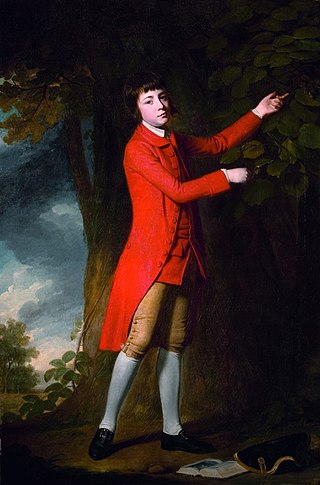William Jenkins Rees (10 January 1772 – 18 January 1855) was a Welsh cleric and antiquary. [1]
Contents

William Jenkins Rees (10 January 1772 – 18 January 1855) was a Welsh cleric and antiquary. [1]

The son of Rees Rees of Llan Dingad, Carmarthenshire, he was born in the parish. He was educated at Carmarthen grammar school, and on 12 April 1791 matriculated at Wadham College, Oxford. He graduated B.A. in 1795 and M.A. in 1797. [2]
Taking holy orders, Rees first obtained the curacy of Stoke-Edith and Westhide, Herefordshire; and in 1807 the rectory of Casgob, Radnorshire, where he spent the rest of his life. In 1820 he was made a prebendary of Christ College, Brecon, and in 1840 a fellow of the Society of Antiquaries of London. [2]
Rees died on 18 January 1855. [2]
Rees is best known for the editorual work he did for the Welsh Manuscripts Society. The society's edition of the Liber Landavensis was transferred on the death of his nephew Rice Rees to him in 1839, and the book appeared in 1840. In 1853 Rees also edited for the society Lives of the Cambro-British Saints (text and English translation). Both of these works were subject to later criticism. [2]
In 1803 Rees published A Short and Practical Account of the Principal Doctrines of Christianity, in 1809 an essay on Clerical Elocution, and in 1811 a tract on pastoral work. [2]
Attribution
![]() This article incorporates text from a publication now in the public domain : Lee, Sidney, ed. (1896). "Rees, William Jenkins". Dictionary of National Biography . Vol. 47. London: Smith, Elder & Co.
This article incorporates text from a publication now in the public domain : Lee, Sidney, ed. (1896). "Rees, William Jenkins". Dictionary of National Biography . Vol. 47. London: Smith, Elder & Co.
John Howard Marsden was an English cleric and academic. He was an antiquarian and became in 1851 the first Disney Professor of Archaeology at the University of Cambridge.
This article is about the particular significance of the year 1772 to Wales and its people.

John Thomas Quekett was an English microscopist and histologist.
George Ayliffe Poole (1809–1883) was an English Anglican cleric and a writer on religion, church architecture and history. He strongly advocated the Gothic Revival.
John Pridden was an English cleric and antiquary.

Thomas Rackett (1757–1840) was an English clergyman, known as an antiquary.
Rogers Ruding (1751–1820) was an English cleric and academic, known as a numismatist and the author of the Annals of the Coinage. He was the Vicar of Malden, Surrey from 1793 until his death in 1820. Prior to his marriage in May 1793, he was the Reverend Clerk at St George's, Bloomsbury, in London.
John Martin (1791–1855) was an English bookseller, librarian and writer, known as a bibliographer.
John William Smith (1809–1845) was an English barrister, known as a legal writer.
Thomas Pell Platt (1798–1852) was an English orientalist.
Thomas William Shore, sometimes given as William Thomas Shore was an English geologist and antiquarian.
William Kay (1820–1886) was an English cleric and academic, known as a college head and biblical scholar.
Isaac Jones (1804–1850) was a Welsh cleric and translator.
Philip Pugh was a Welsh minister.

Foote Gower (1725/6–1780) was an English cleric, academic and antiquarian.
Morgan Phillips was a Welsh Roman Catholic priest and a benefactor of Douai College.
Thomas Nicholas was a Welsh antiquary and educator.
This article is about the particular significance of the year 1709 to Wales and its people.
Bunnell Lewis was an English archaeologist, for many years an academic at Queen's College, Cork, Ireland.

Peter Roberts was a Welsh Anglican divine and antiquary. He graduated MA at Dublin, was ordained, and held successively several livings. His chief works were Sketch of the Early History of the Cymry, 1803, and Cambrian Popular Antiquities, 1815.